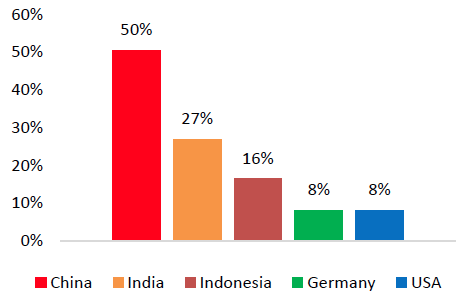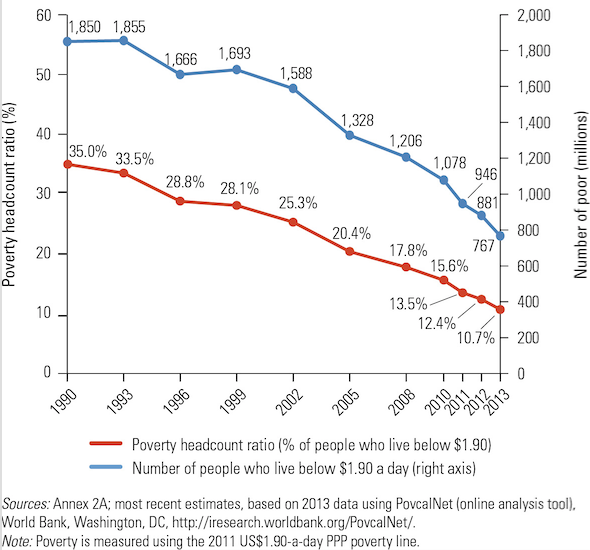“Did you know that, in the past 30 years, the percentage of people in the world who live in extreme poverty has decreased by more than half?”
According to three World Bank economists, the answers from the general public are rather disappointing:
In 2014, 84% of Americans who were asked this question were unaware of such declines in global extreme poverty. In fact, 67% of adult respondents thought global poverty had been on the rise over the past three decades. Unsurprisingly, 68% did not believe it would be possible to end extreme global poverty within the next 25 years (Todd 2014).
A recent study analysing the public awareness around the world of the Sustainable Development Goals confirmed that this widespread ignorance is not a US anomaly (Lampert and Papadongonas 2016). A significant majority of respondents from several countries, both developing and developed, are unaware of this achievement (see Figure 1). Interestingly, Chinese citizens appear much better informed about global poverty trends than those of the US or Germany.

But the public should take heart:
The new Poverty and Shared Prosperity Report 2016 launched this October by the World Bank explains why (World Bank 2016b). The figure below shows that the number of extremely poor people worldwide – measured by the very low $1.90 a day standard – has fallen by 1.1 billion people over the last two and a half decades, a period in which the global population grew by almost 2 billion (see Figure 2). This is true for all regions in the world without exception, from relatively richer Eastern Europe and Latin America to poorer Sub-Saharan Africa and South Asia. True, each region has reduced their poverty numbers at different paces. But the numbers leave little room for doubt – extreme poverty has been effectively and dramatically reduced.

The World Bank is aiming to end extreme poverty by 2030. While there are obstacles to achieve this goal, the above should give us a reason for optimism.
Perhaps more important, it gives us a reason to be thankful.